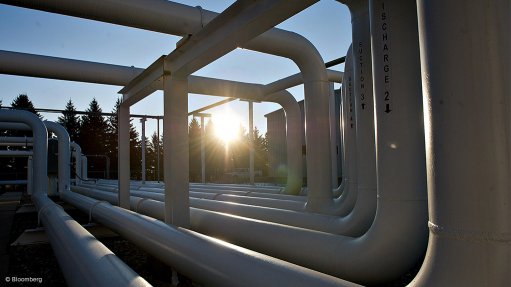
Photo by: Bloomberg
The Multilateral Investment Guarantee Agency (MIGA), a political risk insurance and credit enhancement arm of the World Bank Group, has announced its first engagement in Nigeria’s gas sector along with Seven Energy International, an independent Nigerian integrated oil and gas development, production and gas distribution company.
Seven Energy’s processing facility and pipelines have already started delivering gas to three power stations and two manufacturing plants under the deal, which is expected to have a significant impact in a country suffering from a severe energy shortage due to the lack of infrastructure to bring gas to the domestic market.
MIGA is providing a guarantee of $200-million against the risk of expropriation to Seven Energy’s wholly-owned subsidiary, Accugas.
The investment has a strong environmental profile, as Seven Energy’s operations will reduce gas flaring and displace more-polluting fuels such as diesel and biomass. MIGA’s backing of Seven Energy forms part of a new generation of jointly developed World Bank Group solutions.
In addition to MIGA’s insurance, the World Bank supports the country’s sector reforms, while the International Finance Corporation (IFC), another unit of the World Bank Group, as well as an IFC-managed fund have jointly invested in Seven Energy.
“MIGA’s involvement is an important part of the financial security package that enables us to invest for the long term in Nigeria’s gas sector, a decision that we expect will be good not only for our business, but also for Nigerian citizens, companies, and the economy as a whole,” said Phillip Ihenacho, chief executive officer of Seven Energy.
MIGA’s executive vice president and chief executive officer, Keiko Honda, said Nigeria was at “a crossroads” regarding energy. “MIGA is very pleased to be part of the country’s efforts to reduce its negative impact on climate change by moving toward cleaner energy and reducing gas flaring,” she said.
Most international oil and gas companies in Nigeria are focused on offshore oil, while gas is often considered a byproduct and re-injected, liquefied for export, or flared.
Despite the country’s enormous natural gas reserves, only one third of power is supplied from the national grid. Those connected to the grid face multiple daily power cuts, and 55% of the population has no energy access.
In response, the Nigerian government created the Gas Master Plan in 2009 to increase gas supply and jump-start investments in gas infrastructure through market-based pricing, strengthened regulation, increased contract enforceability, and better-aligned incentives.